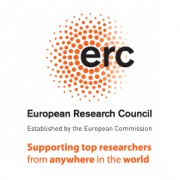Events
Digital humanities in premodern research: problems and prospects in several projects
Digital humanities have clearly been on the rise in the past decade, leading to many ambitious plans and new initiatives. Yet often the plans have been more visible than the results. So are the developments in this field, we may ask, really as promising in practice as they seem on paper? This seminar, part of the Huygens – Descartes Premodern History of Knowledge Colloquiua, ventures to take an evaluative perspective, exploring the tensions between ambitions and practice on the basis of concrete examples and experience.
SATISFYING EVERYBODY’S NEEDS
Each of these examples will illustrate the huge effort it takes to create a product that satisfies the requirements of both software engineers and humanities scholars. Moreover, to create something that is not only useable for the researchers, but also for an audience, requires much more thought and creativity than producing a regular book. So, what does the exercise of creating a digital research product deliver? How is it worth the effort?
SPEAKERS
Three speakers will share their experiences: Thom Snijders (MA student at History and Philosophy of Science in Utrecht) who built the database Computus.lat (giving access to medieval manuscripts that contain texts about the art of time-reckoning); Prof. Mariken Teeuwen and Rutger van Koert about the databases created by the projects Marginal Scholarship, The Art of Reasoning and a new project titled Digital Forensics; and Prof. Arnoud Visser about the digital platform Annotated Books Online.
PROGRAMME
- 15.15 Welcome and ‘Oral Newsletter’
- 15.30 Thom Snijders: “Computus.lat: Creating a new approach to Computus manuscripts from the Middle Ages”
- 15.45 Mariken Teeuwen/Rutger van Koert: “Databases as question generators, and a wild experiment to create a new approach to the dating of historical scripts”
- 16.00 Arnoud Visser: “ABO: challenges in the collaboration between engineers and humanities scholars”
- 16.15 Round Table and Discussion, addressing questions such as:
- What makes a project suitable or unsuitable for a digital approach?
- What makes Virtual Research Environments a success or a failure?
- How does a collaboration across the disciplines work? Do humanities scholars need digital skills in order to build a digital product, and do engineers need historical knowledge?


